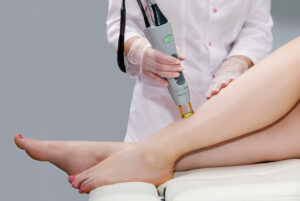In the decades since the 1990’s many changes have occurred, not least the styles, fashions and trends you see on the streets, in the workplace and on TV. In the early 1990’s it was the era of the “Super Model,” with women trying to recreate the iconic looks they saw on runways and magazines across the country.
However, technology has progressed to allow for different treatments to be accessible for people to have in order to make themselves look and feel beautiful. Technology has also facilitated the ability of beauty treatments to be more available than ever before.
In the modern age, with everyone wanting everything ‘now’ and with the internet making beauty treatments more accessible than ever, searches online like “laser hair removal near me” and “local beauty clinics” have increased many-fold, reflecting the desires of modern society for ultimate convenience.
The 1990’s saw a return to a more natural look, but as the 21st century approached people began to want products that not only made them look good but feel good too. This included clothes and fashion items as well as he make up and hairstyles worn by women throughout the UK and the world (source: Rae-The Brand).
Women wanted their products to benefit their skin as well as making it look better. The science behind products were heavily advertised to reassure people that their products were safe and beneficial.
1990s beauty trends followed models on the catwalk that were super slim, and the beauty look was grungy and androgynous. Lipstick shades were mostly nudes and browns and had earthy looks to them and smoky eyeshadow was used to compliment it all.
In the 2000s flavoured lip gloss became an iconic addition to the makeup collection and colour was used as much as it was in the 80s, with brightly colour liner and crimped hair. Eyebrows were also the decades focus, with plucked eyebrows being a look many adorned.
Beauty Trends Today
Beauty trends today are as important as they’ve ever been. With the increased exposure online, due to the explosion in popularity of social media platforms, people are more and more conscious of how they look and whether they fit into the trends of the day.
Beauty trends are started and shared much easier than in the 1990s due to people being able to post makeup tutorials online for anyone to watch, copy and share. Contouring, eyebrow shaping and bronzing are just some of the beauty trends you’ll see today.
As the trends evolved through the decades, so did the technology and ways women could change their look.
Because hair removal has been such a popular treatment over the last several decades, the technology has developed to make such a practice more accessible, affordable and comfortable. Women are replacing waxing and plucking in favour of this method.
What Is Laser Hair Removal?
Laser hair removal is an option that permanently removes unwanted body hair. Although the process can be uncomfortable, many feel it’s well worth it for the treatments’ permanent effects.
With waxing, clients will need to return every couple of weeks to keep up their hairlessness. Whereas after a course of laser hair removal therapy, your hair will never grow back, meaning you’ll never have to worry about shaving or waxing again.
Laser hair removal was first seen in the mid-1990s and it wasn’t until the early 2000s that they were more tested and scrutinised to be cleared as an effective and safe way of removing hair.
However, in the present day the need to get an appointment with a specialist isn’t a necessity at all. Products on the market now can allow you to treat yourself in the comfort and convenience of your own home, something which has become all the more appealing following the COVID-19 pandemic.
Read more:
How Female Beauty Treatments Have Changed Since 1990















